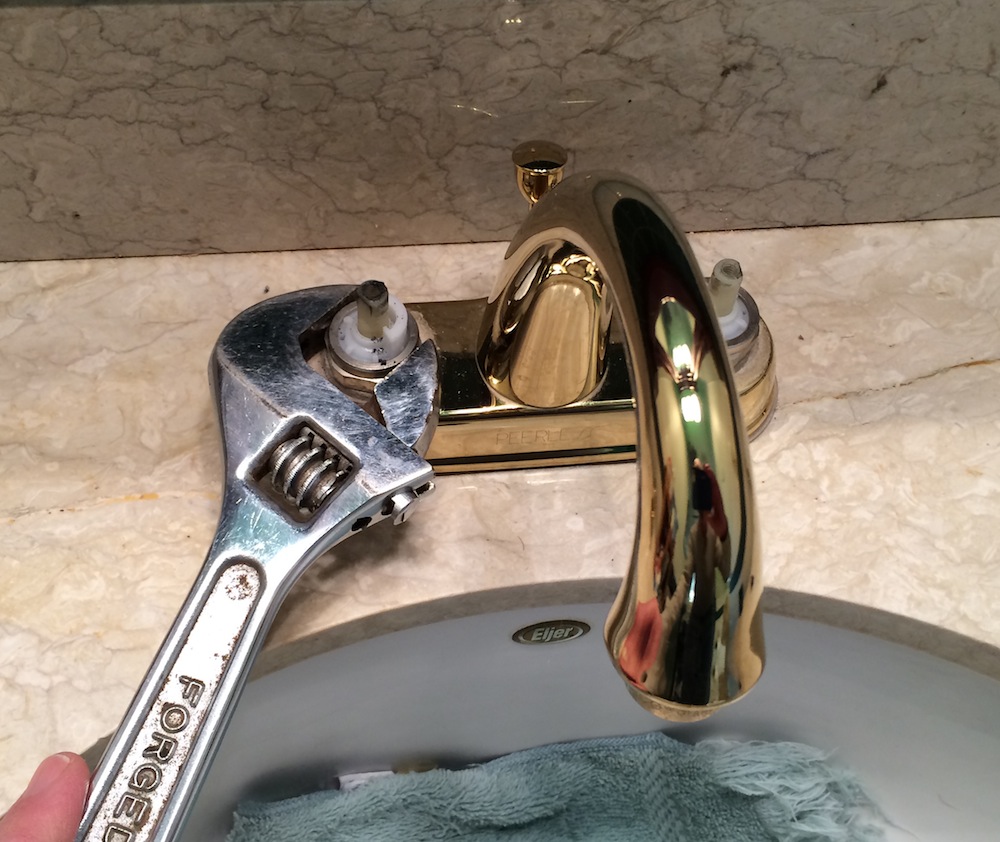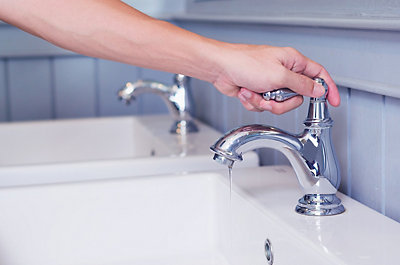Just how do you feel in relation to How to Fix a Dripping or Leaky Faucet ?

Trickling taps could appear like a minor inconvenience, but their effect goes beyond simply the inconvenience of the noise. From drainage to sustaining unneeded monetary costs and wellness threats, ignoring a leaking tap can result in different effects. In this write-up, we'll delve into why it's critical to address this common household issue promptly and properly.
Waste of Water
Ecological Influence
Trickling taps contribute substantially to water waste. According to the Epa (EPA), a solitary faucet leaking at one drip per second can squander greater than 3,000 gallons of water annually. This not just pressures water sources but also influences ecological communities and wildlife dependent on them.
Financial Prices
Increased Water Costs
Past the environmental influence, leaking faucets can pump up water expenses significantly. The gathered wastefulness with time converts into greater utility costs, which can have been prevented with prompt repairs.
Possible Residential Or Commercial Property Damage
Furthermore, long term leaking can bring about harm to fixtures and surfaces surrounding the faucet. Water build-up can trigger discoloration, corrosion, and also architectural problems if left neglected, causing added fixing prices.
Health and wellness Issues
Mold And Mildew and Mold Growth
The consistent presence of dampness from a dripping faucet produces an ideal atmosphere for mold and mildew and mold development. These fungi not only compromise indoor air high quality however additionally posture wellness risks, particularly for individuals with breathing problems or allergic reactions.
Waterborne Diseases
Stationary water in leaking faucets can become a breeding ground for germs and other pathogens, increasing the threat of waterborne conditions. Contaminants such as Legionella germs prosper in stationary water, possibly resulting in significant health problems when ingested or inhaled.
Do it yourself vs. Expert Fixing
Benefits and drawbacks of Do It Yourself Repair Service
While some may try to repair a trickling tap themselves, DIY repair work feature their very own collection of difficulties. Without proper understanding and tools, DIY attempts can aggravate the issue or bring about incomplete repairs, lengthening the trouble.
Advantages of Working With a Specialist Plumber
Working with a professional plumber ensures that the underlying reason for the dripping tap is addressed effectively. Plumbing technicians have the experience and tools to identify and repair faucet issues successfully, conserving time and decreasing the threat of more damage.
Step-by-Step Guide to Fixing a Dripping Tap
Devices Called for
Before trying to take care of a dripping tap, collect the required tools, including an adjustable wrench, screwdrivers, substitute parts (such as washers or cartridges), and plumber's tape.
Common Faucet Issues and Their Solutions
Identify the kind of faucet and the details concern triggering the drip. Common troubles include worn-out washing machines, rusty shutoff seats, or faulty O-rings. Refer to manufacturer guidelines or on-line tutorials for detailed advice on repairs.
Safety nets
Normal Maintenance Tips
To avoid trickling taps, execute regular maintenance such as cleaning up aerators, evaluating for leaks, and changing worn-out components without delay. In addition, think about setting up water-saving tools or updating to a lot more effective fixtures.
Value of Prompt Fixes
Attending to leaking taps as soon as they're seen avoids additional water waste and possible damages, ultimately conserving both water and cash in the future.
Influence On Residential Property Value
Perception of Well-Maintained Property
Preserving a residential property in good condition, including resolving maintenance concerns like dripping taps, enhances its viewed worth and desirability among prospective buyers or lessees.
Impact on Resale Value
Characteristics with well-maintained plumbing fixtures, including taps, command higher resale worths in the property market. Addressing dripping taps can contribute to a positive impact throughout home assessments and negotiations.
Environmental Duty
Specific Contribution to Preservation
Taking responsibility for fixing leaking taps lines up with more comprehensive efforts toward water preservation and ecological sustainability. Every individual's actions collectively make a substantial effect on maintaining priceless sources.
Lasting Living Practices
By prioritizing timely repair services and embracing water-saving practices, people add to lasting living practices that profit both present and future generations.
Verdict
Dealing with a leaking tap exceeds mere ease; it's a vital action toward saving water, lowering economic costs, and securing health and wellness and residential or commercial property. Whether through DIY repairs or expert assistance, doing something about it to deal with leaking faucets is a tiny yet impactful method to advertise accountable stewardship of sources and add to a much healthier, extra lasting future.
How to Fix a Leaky Faucet: Step-by-Step Repair Guide
A leaky faucet may seem like a simple annoyance, but if it's not fixed promptly, that leak could cost hundreds to potentially thousands. From water damage to mold, mildew, and high water bills, even a tiny leak can be catastrophic if left unattended. Damage like this can even affect the overall value of your home, so it's important to take the right approach for leaky faucet repair. You may need the help of a plumber in some cases, but we've got a few tips you can try on how to fix a leaky faucet before calling the pros.
Four Faucet Types
When you're learning how to fix a leaky faucet, the first step is knowing what kind of faucet you're working with! There are four common types.
Cartridge Faucets
Cartridge faucets come in one- or two-handled varieties. In one-handled cartridge faucets, hot and cold water combines in a single cartridge. In the two-handled versions, hot and cold water are controlled separately and mixed in the faucet.
Ball Faucets
Ball faucets have a single lever you push up and down to adjust the pressure and rotate to change the temperature. A slotted metal ball controls the amount of water allowed into the spout.
Compression Washer Faucets
They're the oldest type of faucet, but they're still used in many homes — especially older ones. Compression faucets have two separate handles that, when turned, raise or lower the washer that seals a water valve. This valve stops water from flowing through the faucet when it is turned off.
Disc Faucets
Disc faucets rarely need to be repaired due to their maintenance-free design. The water flow is controlled by two discs — the upper one raises and lowers against a fixed lower disc, creating a watertight seal. If your disc faucet starts leaking, you may need to replace the seals or clean residue buildup from the inlets.
Fixing a Leaky Faucet
Step 1: Turn Off the Water
Whether you're learning how to fix a leaky bathtub faucet or how to fix a leaky kitchen faucet, always turn off the water supply to your working area when you're fixing a leak. The last thing you want is a flood added to your list of things to fix.
Look for the shutoff valves below your sink or around the tub and turn them clockwise to stop the water flow. If your faucet doesn't have shutoff valves, you may need to turn off the water for the whole house. Check to make sure it's off by turning the faucet on. If nothing comes out, you're ready to start the repair.
Step 2: Take Apart the Faucet
How you disassemble your faucet depends on the type of fixture you have. You can use a flathead screwdriver to remove the caps on top of the handle or handles for cartridge and compression faucets. Inside, you should see handle screws. Unscrew these with a screwdriver to remove the handle.
Disc- and ball-style faucets will typically have an inlet screw near the handle, and removing that will reveal the interior of the faucet.
Detach the Valve Stem
For cartridge- and compression-style faucets, you'll see the inner valve stem or cartridge once you remove the faucet handles. If you have a compression faucet, unscrew the brass valve stem. If you have a cartridge faucet, pull out the cartridge. If your cartridge has been in place for a while, it may require some tools or extra force to remove it due to mineral deposits.
Examine and Replace Parts
Once you've removed the parts, check them out to confirm what needs to be replaced. You may see corroded rubber washers, O-rings, stems, or cartridges. On a ball-style faucet, check the seats and springs for damage.
If you need to repair a leaky disc faucet, check the inlet and seals on the lower disc.
Once you determine what parts must be replaced, visit your local hardware store. Bring the damaged parts with you to ensure you can purchase the correct components to replace them.
Clean Valves and Faucet Cavity
If you've removed a stem or cartridge, you may notice mineral buildup in the faucet's threads. Use white vinegar to clean the valve seat by soaking it for a few minutes, then scrub it away with a soft toothbrush and rinse with warm water. You can also clean the interior of the faucet in the same way.
Reassemble the Faucet
Once your faucet is cleaned and the required parts have been replaced, it's time to reassemble it. Put the pieces back together and slowly turn the water supply back on. Doing this slowly is crucial because too much initial water pressure can damage the new hardware you've just installed.
https://homewarranty.firstam.com/blog/how-to-fix-leaky-faucet

I'm just very excited about Water Dripping from Faucet: Why and How to Fix and I'm hoping you liked the article. In case you appreciated our article plz make sure you remember to share it. Thanks so much for your time spent reading it.